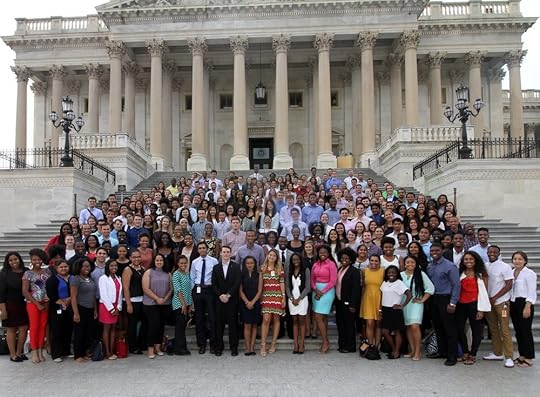Matthew Dicks's Blog, page 241
April 12, 2018
Try something new. Again and again and again.
My wife, Elysha, is learning to play the ukulele. Her remarkable and handsome husband gave her a ukulele and lessons for Christmas, and ever since December, she has practiced and played almost every day.
It's her new thing.
My friend, Steve, is hosting his first corn hole tournament on Saturday in his backyard. Dozens of competitors, corporate sponsors, fabulous prizes, and he's opening the event with a singing of the national anthem.
It's his new thing.
I can't say enough about introducing new things to your life on a regular basis.
You must. You never know where they might lead.
Back in July of 2011, I went to New York City to tell a story on a Moth stage. My plan was to tell one story and never do it again.
Today, I have become a storyteller who performs all over the country and the world.
In 2013, Elysha and I produced our first Speak Up storytelling event at Real Art Ways in Hartford, expecting 30-40 friends would gather two or three times a year to listen to stories.
Today, we produce about a dozen shows per year for audiences as large as 500 people.
In 2014, I taught my first storytelling workshop, telling the participants that this would be the only workshop I ever teach.
Four years later, I teach storytelling professionally. I work with corporations, clergy members, politicians, nonprofits, colleges and universities, public schools, hospitals, and many more.
The last four days alone:
On Saturday, I taught storytelling at Central Connecticut State University to abut 75 educators as part of a conference on literacy.
On Sunday, I taught storytelling to a group of remarkable young women at Miss Porter's School, a private boarding school in Connecticut, in preparation for a show that I will be producing on campus.
On Monday I traveled to a Mohawk reservation an hour north of Toronto, Canada, to teach storytelling to a group of Mohawks who are learning their native language for the first time,
Yesterday, I taught storytelling to high school students in Woodbridge, CT. I also produced a story slam for students and performed that night alongside friends and fellow storytellers.
Tonight I will consult on storytelling with an attorney in Kansas City who works to reform housing and labor practices in his city.
All of this happens because in 2011, I tried something new.
In 2013, I tried something new.
In 2014, I tried something new.
I shudder to think what my life might be like today had I not taken that stage seven years ago.
Not everything that I try has similar results.
I wrote a book of poetry that will never see the light of day.
I've written picture books that no one wants to publish.
I tried to learn to code online and honestly could not wrap my mind around any of it.
But each of these new experiences opened a door to me. Provided me with possibility. Gave me new insights. Carved new neural pathways in my brain.
Elysha may never play the ukulele professionally, but every night. we listen to her play and sing, and it's beautiful.
Steve may never turn his corn hole tournament into anything more than an annual backyard event, but those annual tournaments will be a source of joy and amusement for him and his friends and family.
I keep a list in Evernote called "What's Next?" It's a list of things I want to try at some point in my life. Some of the items on the list are realistic and doable. Others are fanciful and unlikely. But if you had told me seven years ago that I would spend two days on a Mohawk reservation in Canada teaching Native Americans to tell stories, I would've thought you were being ridiculous.
You just never know.
Items on my "What's Next?" list include:
Perform my one-person show in a theaterSpend a summer at Yawgoog Scout reservationWrite and direct a short filmLaunch a podcast with featuring me and the kidsLearn to make an outstanding tuna avocado melt for ElyshaTry curlingTeach a college class for new teachers about the things that are really importantOfficiate a funeralBecome a notary Become an instructional coach Design and teach a competitive yoga classLand a weekly column in a major newspaperBecome an unlicensed therapistThese are just a few of the many items on my life. An endless list of opportunities for me to try.
Life is so full of opportunities. So full of possibilities. Yet I see so many people become stagnant and still. Stuck in the routines of their lives. Unwilling to try new things. Afraid to attempt the ridiculous or the difficult or the seemingly impossible.
Avoid this at all cost. Pick up a ukulele. Start your own corn hold tournament in your backyard. Officiate a funeral.
Do something new, and after that, doing something else that is new. Keep doing this. Never stop. Life is full of possibility and surprise if you allow it.

April 11, 2018
Evangelicals hate. Jesus would love.
Evangelicals would disagree, but this is exactly the kind of church that Jesus would love if he were here on Earth.
I'm not a religious person. I describe myself as a reluctant atheist, and that's about right. I wish I had faith, but despite a lifetime of effort, I've yet to find it.
But I've read The Bible - beginning to end - three times in my life, and I've read the first four books of The New Testament many times beyond that. I cannot imagine how Evangelicals - or anyone, really - could read the books of The New Testament (the story of Jesus) and not think that Jesus would support every word on this sign.
I have to believe that they have either never read their foundational text from beginning to end or have been taught to pick and choose between the Old Testament and the New Testament, buffet style, in order to better support their bigotry.
Transactional Christians. Not the kind of Christians who Jesus - human philosopher or Son of God - would want following him.
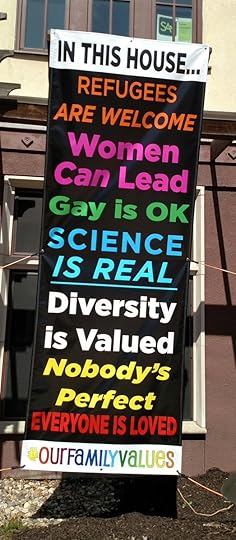
Going nowhere
The woman sitting beside me on a plane bound for Toronto fell asleep as we taxied out onto the runway. We were tenth in line to takeoff, so we were on the runway for quite a while.
Just before it was our turn to takeoff, the pilot announced that the plane was experiencing problems with the brakes, and we would need to return to the terminal.
When the plane finally came to a stop at the gate, the woman beside me woke up.
"Wow," she said. "I slept through that whole flight!"
I smiled. “No, I'm afraid we’re still in New York. We haven’t gone anywhere yet.”
The look on her face... such disappointment.
I was just so very happy to be the one to break the bad news to her.
April 9, 2018
Good news/bad news on the exoneration front
Good news:
Lawrence McKinney, 61, jailed for 31 years for a crime he did not commit - rape and burglary - has been awarded one million dollars in compensation from the state of Tennessee.
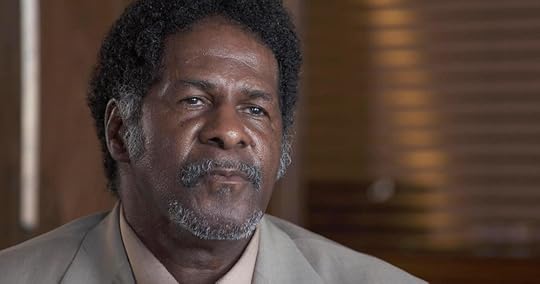
A decidedly different outcome from Lamont McIntyre's fate, who I wrote about a couple weeks ago.
Bad news:
It wasn't easy. And it almost didn't happen.
Upon his release from prison, McKinney received just $75 after three decades behind bars.
"Because I had no ID it took me three months before I was able to cash it," McKinney told CNN.
After he was freed, Mr McKinney sought a full exoneration. This was the only way he could petition the state for a more appropriate settlement. But in 2016, a parole board unanimously voted against a full exoneration, even though all DNA evidence indicated he was not guilty of his crime.
One board member defended their decision not to exonerate him with this gem:
"The victim's descriptions to police matched McKinney's description, to a tee."
However, Tennessee Governor Bill Haslam reversed the parole board's verdict and unilaterally exonerated him in December 2017. Only then were McKinney's attorneys able to get him his one million dollar settlement.
Had the governor not intervened, McKinney's $75 settlement would have stood. That amounts to .006 cents per day of incarceration.
Six-thousands of a cent per day behind bars.
Even now, the settlement of one million dollars amounts to just $88 per day, and once attorney's fees have been deducted, that amount is closer to $61 per day.
There is no way to return 31 years of a man's life, but the state can at least ensure that his remaining years are spent is relative leisure and comfort.
Is that really too much to ask?
Recently, Nevest Coleman made news after being released from prison after 23 years thanks to DNA evidence and immediately returned to his job as Chicago White Sox groundskeeper.
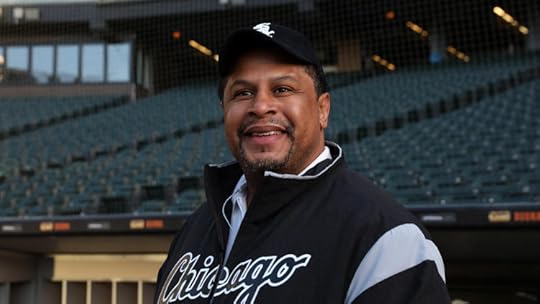
Coleman endured a 12-hour interrogation, during which he was punched by a detective when he denied any involvement in the killing.
Told he could go home if he confessed, Coleman was coached to say that two other men had carried out the murder while he acted as a lookout. Coleman gave a statement, then recanted as soon as his lawyer arrived, according to court records.
Coleman and co-defendant Darryl Fulton both gave confessions and were convicted of rape and murder, while a third suspect who did not confess, was never charged.
As a person who came precariously close to confessing to a crime he did not commit after hours of interrogation and false promises, I can't tell you how much I feel for those men. I know what it's like to be in that small room, desperate to escape, feeling like you never will.
The same detectives who coerced Coleman and Fulton's confessions were involved in other questionable cases. Just last month, defendants arrested by the same detectives but later exonerated by DNA evidence reached a $31 million settlement with the city.
Colemman and Fulton have yet to learn how much they will receive.
Hopefully more than a groundskeeper makes.
April 8, 2018
Snoopy's advice sucks
If you know me at all, you'll know that I suffer from a persistent, constant, never-ending existential crisis.
I think about death all the time. More that you could ever imagine.
In an effort to alleviate my concerns and perhaps offer me a little peace, one kind reader sent me this cartoon.
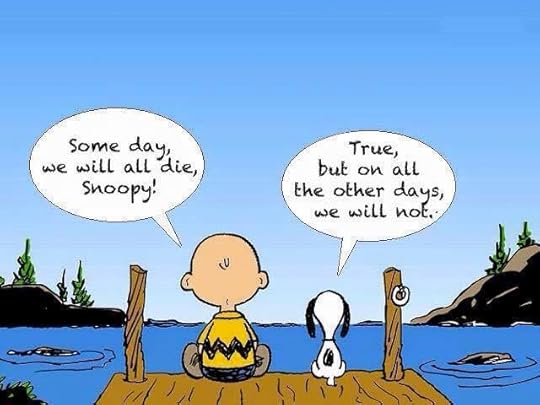
But there's one terrible flaw in Snoopy's logic:
Yes, it's true. There is only one day in our lives when we will die, but we will also stay dead for all the days after we die. For as long as time and space exist, we will not.
Death sucks, but it's just the beginning of an eternity of remaining dead. And that, even more than my death, saddens me. Constantly. Immeasurably.
April 7, 2018
Just a T
Driving to dinner last night, Clara looked out the window and said, "Aw! Look at the pretty T!"
My poor, confused, Jewish daughter...

April 6, 2018
Yes, they are real eggs
I found myself at dinner recently assuring someone for what felt the millionth time that the eggs cooked at McDonald's are in fact real eggs.
"They actually crack eggs?" she asked.
"Yes," I said. "They crack the damn eggs."
"Really? They crack real eggs every morning?"
"Yes."
The question arose because I had been explaining to the woman that every morning I stop by McDonald's for an Egg McMuffin. When she heard this, she looked at me in horror. Possibly disgust.
Naturally my first question was: "When was the last time you were in a McDonald's?"
Here answer, as I expected, was a billion years ago.
This always astounds me. Kind, generous, thoughtful souls are always so willing and quick to assume and judge when it comes to food. Whether it's fast food or processed food or anything in between, people make rapid determinations about food absent of any facts and experience.
For example, people assume that fresh vegetables are the best possible form of vegetables, when the truth is that frozen vegetable are just as good for you (and sometimes better for you) than fresh vegetables.
When I explain this fact to perfectly rationale human beings, they scoff. When I provide scientific evidence of this fact, they refuse to believe. When I show them mountains of research proving my case, they change the subject.
Fresh food is supposed to be better than frozen food, damn it. End of story.
Another example: Every day, almost without exception, I eat a bowl of Quaker instant oatmeal for lunch. Colleagues have repeatedly questioned my choice of lunch, the rigid consistency of my lunch, and my decision to eat prepackaged oatmeal as opposed to the fabled steel-cut, homemade variety.
I explain that I eat instant oatmeal on the advice of my doctor, and after one year of eating instant oatmeal almost every day, I lowered my cholesterol 50 points. I went from borderline high cholesterol to fantastic cholesterol, and the only change I made was one bowl of instant oatmeal every day.
Just as my doctor ordered.
When I asked a nutritionist if I should consider switching to the homemade, all-natural, steel-cut variety, her response was this:
"Only if you prefer the taste and want to spend more time making oatmeal. The instant oatmeal probably has a little more sugar than what you'd make at home, but otherwise it's just as good for you. Oats are oats."
Yet when a person sees my lunch emerge from a small, brown bag and cooked in a microwave, the assumption is that I'm eating a processed, unhealthy food that would never be found in a good and wholesome place like Whole Foods. And when I explain that my doctor and a nutritionist fully support this decision, and that I've lowered my cholesterol 50 points in the process, they continue to fight.
Food that comes out of little brown bags and cooked in microwaves isn't supposed to be good for you, damn it. End of story.
So back to the Egg McMuffin. I eat one a day. Over the course of ten years spent managing McDonald's restaurants I made tens of thousands of Egg McMuffins. I've cooked so many eggs that I can hold four eggs in my two hands and crack and empty them into a frying pan simultaneously.
Here is what an Egg McMuffin is made of exactly:
One real, honest-to-goodness egg, cracked into a egg ring and poached.
One English muffin, exactly like the kind of English muffin you have in your home.
One slice of American cheese, exactly like the American cheese you purchase at a deli.
One round slice of Canadien bacon.
That's it. All real ingredients. 290 calories in total.
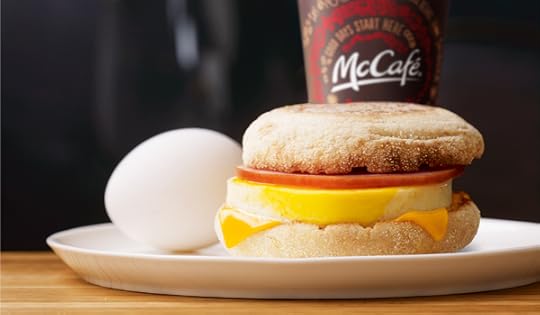
If I was to serve you a scrambled egg (with a little American cheese mixed in for flavor) alongside an English Muffin and a slice of bacon, you'd accept this as a reasonable breakfast. If I served it to you on a pretty plate with a orange wedge garnish (that you probably wouldn't eat) and a cup of your favorite coffee, you'd think you were in heaven.
Yet hand that same breakfast through a drive thru window in sandwich form and people can't believe the egg is real.
Fast food is not real food, damn it. End of story.
I'm not implying that all fast food or processed food is good for you. I'm not saying that eating an Egg McMuffin every morning is the best possible breakfast.
I often add an apple or a banana for that very reason.
What I'm asking is that when it comes to food, we try to assume less. Be less influenced by preconceived notions. Be less susceptible to the marketing of corporations like Whole Foods and The Food Network. Be a little less fetishistic about our food beliefs. Be more open-minded to the idea that perhaps food establishments or food products that you have deemed demonic are perhaps not as evil as you once thought.
And stop doubting the fact that McDonald's cracks real eggs, every morning, in every restaurant.
April 5, 2018
The best compliment wasn't about my hair
A colleague stopped by my classroom the other day. She approached my desk and said, "I know this probably doesn't mean anything to you. I know you don't really care about physical appearance and things like that, but I wanted you to know that I really like your haircut."
This was an amazing compliment. One of the best compliments I've received in a long time.
And it had nothing to do with my hair.
Instead, this colleague acknowledged that she knew me. Really knew me.
She knows that except for my wife, children, and mother-in-law, I never compliment physical appearance. In my effort to reduce the obsessive amount of attention we pay to the way someone looks, I refrain from all of these comments and instead compliment words and deeds only.
She also knows that in addition to this policy, I also take little personal stock in physical appearance. While I would certainly like to appear attractive, she knows that when it comes to things like clothing and hair, utility, comfort, and efficiency are my primary motivators, far exceeding anything related to the way I look.
I know, for example, that if I wore a jacket and tie on occasion, certain people would appreciate this look and think it attractive. But I reject neckties as ridiculous, pointless, decorated nooses strapped around the necks of men who are conforming to senseless, arcane, sometimes dangerous tradition.
And if I'm going to wear a jacket, it's probably going to be a hoodie. At the very least it will be something with good pockets. A traditional suit jacket doesn't even keep you warm on a cold day. Many of the pockets are decorative only.
I rarely wear a traditional jacket, and I threw my neckties away years ago because I prize utility, efficiency, and comfort over physical appearance. I would rather preserve my precious time, achieve more as a result, and feel better while doing so than have someone think that the bit of cloth wrapped around my neck, designed and fashioned by someone other than me, somehow makes me look more attractive.
That strikes me as ludicrous and absurd. It makes no sense.
This colleague, who I have worked with for years, knows this about me.
She knows me.
As a storyteller and a writer of blog posts, newspaper columns, and a hopefully soon-to-be-published memoir, I speak and write to be known. I stand on stages and share my most personal, embarrassing, frightening, and intimate moments in an effort to have others understand who I am. To connect with me. To know me.
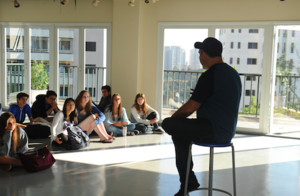
My colleague wanted to compliment my haircut, but instead, she offered me something far more meaningful. She told me that she understood me as a human being. She understood my personal philosophy. My primary motivation. My nonconforming eccentricities.
She knows me. Far beyond my haircut or clothing choices, she knows me as a human being.
That was a compliment that meant something to me. It meant a whole lot.
And it had nothing to do with my hair.
April 4, 2018
Time spent in the Starbucks drive thru line is not time well spent
When asked about how I get so much done, I have a multitude of answers. Strategies. Recommended routines. The propagation of certain habits. Suggested ways of thinking.
But what I should really say every time I'm asked this question is this:
I value my time appropriately. I know that time is the most valuable commodity on the planet, and therefore I am constantly making value judgements about how I will spend it.
Most human beings don't value their time appropriately. I have a multitude of examples to demonstrate this tragic fact, but here is one that makes me insane:
There is a Starbucks near my home with a drive thru window. I stop by this Starbucks on the weekends to pick up Elysha's latest caffeinated fix. The line of cars in the drive thru line at this establishment is typically so long that it sometimes blocks the entrance to the parking lot.
It's insanity. It infuriates me. The parking lot in front of the store is bereft of cars. The parking spot beside the front door is empty. The inside of the Starbucks is almost empty. Twice as many employees as customers. Yet people will sit in their cars, waiting for this line to slowly wind its way around the building instead of hopping out of the car and going inside.
These are people who do not value their time appropriately.
Last weekend, I decided to determine if I was missing something. Maybe I was misunderstanding the situation.
Perhaps the line moves incredibly fast?
It doesn't. I watched customers walk into the store, order their coffee, receive their coffee, use the restroom, and leave long before the cars at the back of the drive thru line were even close to the window.
Maybe these were parents with little children strapped into car seats?
Nope. I walked around the building, creepily eyeing the back seats of these cars. While I'm sure there are occasionally parents with small children in the drive thru line, none were in line on either day that I checked.
These are people who are not valuing their time appropriately. They are spending time in a drive thru line when there is a faster, more efficient option available.
It's a small thing, and it's admittedly not a lot of time wasted. Ten minutes at best. But when you start to value time appropriately, you realize that all time is valuable, regardless of its size.
For me, ten minutes could mean an extra ten minutes on a treadmill, which could equate to an extra 60 calories burned.
Ten minutes could mean an extra paragraph written in a novel, which brings me one paragraph closer to completion.
Ten means could mean an extra ten minutes spent playing soccer with the kids on the front lawn.
Ten minutes could mean a dishwasher emptied, a load of laundry folded, a letter written, a cat cuddled, a permission slip completed, an email answered, a page read, a magazine article pitched, a phone call made, a photograph taken, or a banana eaten.
These ten minutes add up quickly. People don't believe it. They think tens minutes here and there are nothing. I know this because they roll their eyes and scoff at the ways I try to preserve tiny slivers of time every day. They think it's ridiculous that I practically run through the grocery store when shopping. They think that my deeply-held desire to identify the most efficient way to empty a dishwasher is ludicrous. They think it's silly that I try to keep my shower to under 100 seconds. They think it's insane that I eat the same thing for lunch almost every day.
But this time matters. These minutes add up quickly, and the results of this time saved are extraordinary.
When you're on your death bed years from now, moments from the end, will you wish you'd spent more time in a Starbucks drive thru line?
Or will be wishing that you could've written just one more letter to a loved one or eaten one more banana or spent just a few more minutes with your children when they were little?
I know the answer to this question. I think about it constantly. This question is my guiding force. My ever-present mantra.
I know the answer to this question. I think you do, too.
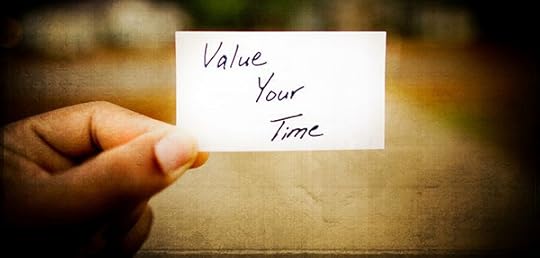
April 3, 2018
Republican interns are white.
Look no further than the current crop of White House summer interns to understand precisely what hardline Republican immigration policies are all about.
You need to aggressively disregard people of color to end up with the group of almost entirely white people.
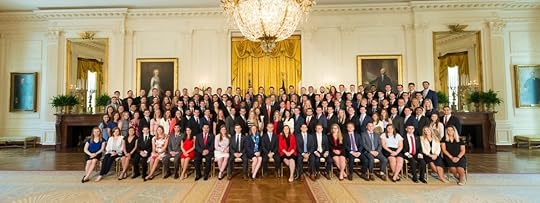
Lest you think this is an aberration, here is a photo of last year's White House interns.
Note the striking similarity.
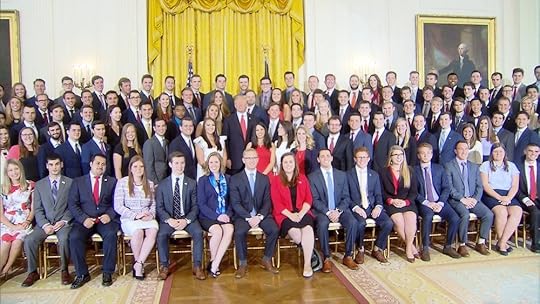
And here is a photo of the Republican Congressional interns from last year.
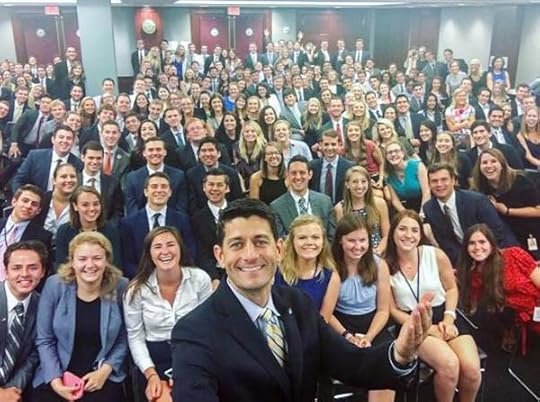
In case you're wondering what the Congressional interns for the Democrats looked like, here is their photo.
Pretty much says it all. Don't you think?
